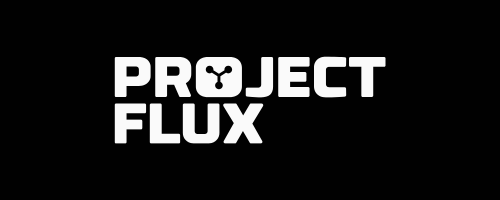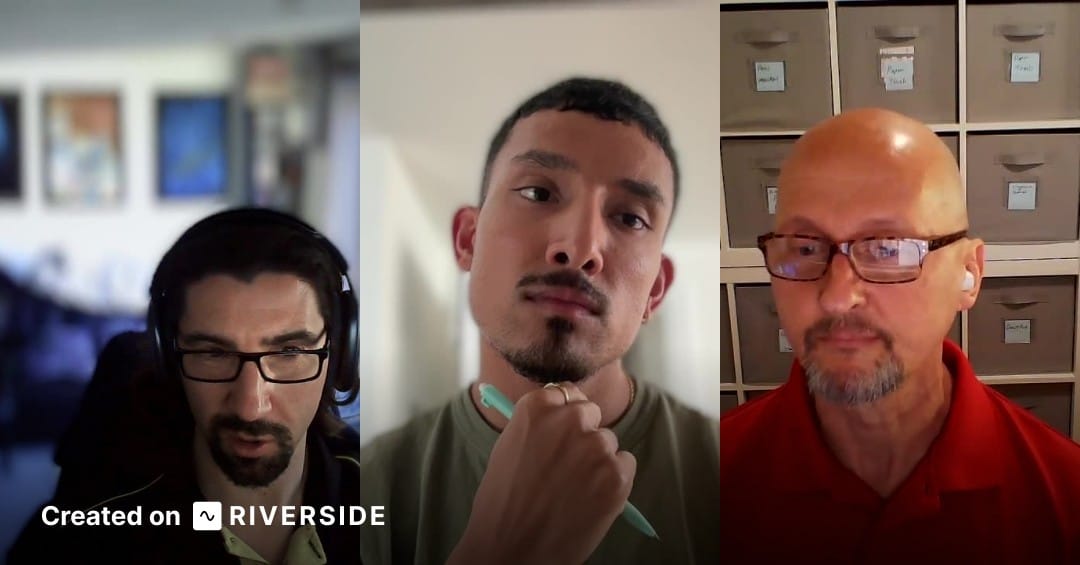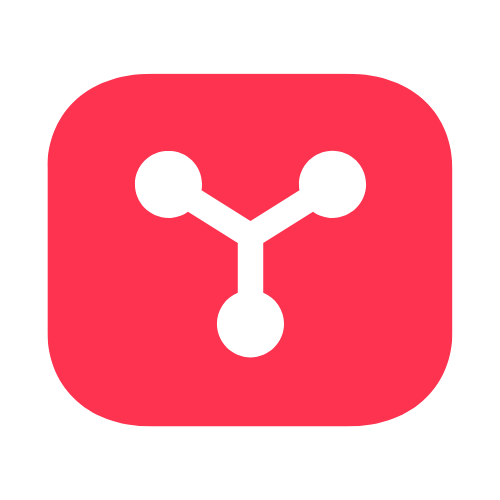
Proudly sponsored by ConstructAI, brought to you by Weston Analytics.
Hello Project AI enthusiasts,
Welcome to Project Flux, your weekly briefing on the AI-driven world. This week, we’re diving deep into the unnerving trend of ‘AI psychosis’ and what it means for the future of work. We'll also look at Goldman Sachs' latest job displacement forecast and a new AI image editor that's turning heads. It's a packed edition, so let's get straight to it.
In This Edition
Flux check-in
Microsoft's AI chief, Mustafa Suleyman, has sounded the alarm on a disturbing new trend: 'AI psychosis.' As we become increasingly reliant on AI assistants, some users are developing unhealthy attachments, blurring the lines between human and machine. This raises profound questions about the psychological impact of AI and the ethical responsibilities of its creators. Read the full breakdown →

What Does This Mean for Me?
For project-delivery professionals, this isn't just a curiosity; it's a new frontier of risk management. As AI tools become more integrated into our workflows, we must consider the potential for employee burnout, distraction, and even delusion. It's a stark reminder that the human element remains paramount, and we must be vigilant in safeguarding our teams' mental well-being.
Key Themes
The rise of 'AI psychosis' and its implications.
The ethical tightrope of AI development.
The human cost of our reliance on AI.
The future of human-AI collaboration.
Down the Rabbit Hole
Goldman Sachs has weighed in on the AI and jobs debate, predicting that while some roles will be displaced, the overall impact will be one of task compression rather than outright job elimination. The report suggests that programmers, accountants, and customer support roles are most at risk, but that new roles will emerge to offset these losses. Read the full breakdown →

What Does This Mean for Me?
For those of us in project delivery, this is a call to adapt and evolve. The skills that will be most valuable in the age of AI are those that complement machine intelligence: critical thinking, creativity, and strategic planning. It's time to double down on these uniquely human capabilities and embrace a future of human-AI collaboration.
Key Themes
AI's impact on the future of work.
The rise of task compression.
The importance of uniquely human skills.
The future of human-AI collaboration.
Down the Rabbit Hole
Together with Cogram
Power your construction bids with AI

Cogram’s AI-assisted RFP bidding tool writes tailored RFP proposals in minutes instead of weeks.
Automatically extract key details from the RFP — including scope, submission requirements, deadlines, and evaluation criteria — to easily make a go/no-go decision.
Cogram’s AI will then reference your firm’s knowledge base and past proposals to draft tailored proposals within minutes.
Use AI-assisted editing tools to review, cross-check data, and make improvements remarkably fast.
Meta is under investigation in Texas for allegedly marketing its AI chatbots as mental health tools, a move that has drawn sharp criticism from regulators and child safety advocates. The investigation highlights the growing concern over the ethical implications of AI and the potential for these powerful tools to be misused, particularly when it comes to vulnerable users. Read the full breakdown →

What Does This Mean for Me?
This is a cautionary tale for anyone involved in the development or deployment of AI-powered products. The ethical considerations are not just a matter of compliance; they are fundamental to building trust and ensuring the long-term viability of your projects. As project leaders, we have a responsibility to champion ethical AI and to protect our users from harm.
Key Themes
The ethical challenges of AI development.
The importance of responsible AI.
The need for greater transparency and accountability.
The future of AI regulation.
Down the Rabbit Hole
Microsoft has made a significant leap forward in the AI race, integrating GPT-5 across its entire Copilot ecosystem. This move brings a new level of intelligence and context-aware capabilities to Microsoft 365, GitHub, and Azure AI, promising to transform the way we work. Read the full breakdown →

What Does This Mean for Me?
For project managers, this is a game-changer. The enhanced capabilities of Copilot will enable us to automate more tasks, gain deeper insights from our data, and collaborate more effectively with our teams. It’s a powerful new tool in our arsenal, but it also requires us to adapt our workflows and to learn how to get the most out of these new capabilities.
Key Themes
The power of GPT-5.
The future of AI-powered productivity.
The importance of adapting to new technologies.
The future of human-AI collaboration.
Down the Rabbit Hole
A new AI image editor, Nano Banana, has emerged from the shadows, and it’s already making waves in the design world. With its powerful text-based editing capabilities and hyper-realistic output, Nano Banana is being hailed as a potential game-changer, offering a glimpse into a future where anyone can be a professional designer. Read the full breakdown →

What Does This Mean for Me?
For creative professionals, Nano Banana is both a threat and an opportunity. It’s a threat to those who are unwilling to adapt, but it’s an opportunity for those who are willing to embrace new tools and to explore new creative possibilities. The future of design will not be about man versus machine, but about man and machine working together to create things that were once unimaginable.
Key Themes
The rise of AI-powered design.
The democratization of creativity.
The importance of adapting to new technologies.
The future of human-AI collaboration.
Down the Rabbit Hole
The pulse check
Tips of the week
This week’s tip is all about mastering the art of the prompt. OpenAI has revealed five key tricks for getting the most out of GPT-5: using trigger words, leveraging the prompt optimiser, being specific, using structured prompts, and encouraging self-reflection. By incorporating these techniques into your workflow, you can unlock a new level of creativity and productivity.
And for those of you who are new to the world of prompting, be sure to check out the new Copilot function in Excel – it’s a great way to get started.
Robotics
China recently hosted the inaugural World Humanoid Robot Games, a groundbreaking event that showcased the latest advancements in robotics and offered a glimpse into the future of human-robot interaction. Read more about the event here.
Governance & Security
The US government is reportedly in talks to take a 10% stake in Intel, a move that would make it the tech giant’s biggest shareholder and signal a major step towards boosting domestic AI chip production.
This comes as the AI industry grapples with the immense opportunities and challenges of the AI gold rush, with some experts warning of a potential hard landing. Meanwhile, SK Group’s Chey Tae-won is pushing for greater AI skills and efficiency, highlighting the growing importance of human capital in the age of AI.
Trending Tools and Model Updates
Alibaba's Powerful New AI Image Editor: Alibaba has launched a new AI-powered image editing tool with advanced capabilities for image manipulation and enhancement. Check it out here.
Grammarly's New Interface and AI Tools: Grammarly is rolling out a new interface and more AI tools to help you write with confidence and clarity. Learn more here.
Other things we’re loving
UK rejects OpenAI's offer - Britain's stance on AI partnerships
Unrealistic narrative of superhuman intelligence - Challenging AI hype expectations
US government plans to take a 10% stake in Intel - Strategic chip manufacturing investment
The bitter lessons versus the garbage can - AI development philosophy debate
Otter Faces Class Action Lawsuit - Privacy concerns in AI note-taking
AI rate of acceleration infographic - Visual timeline of AI progress
Anthropic CEO: AI Will Be Writing 90% of Code - Bold predictions for coding future
Meta is shaking up its AI org, again - Internal restructuring at Meta •
Proton's New Privacy-First AI Chatbot - Alternative to mainstream AI assistants
OpenAI launches sub $5 ChatGPT plan in India - Affordable AI access expansion
Community
The Spotlight Podcast
Why it's 1992 again

In this episode of the Project Flux Spotlight Series, Derek Crager, CEO of Practical AI, discusses the transformative potential of AI in enhancing access to information and improving quality of life.
He emphasizes the importance of understanding the problems before applying AI solutions, the balance between speed and quality in AI outputs, and the unique perspectives that neurodiversity brings to innovation.
Derek shares his journey from a blue-collar background to leading an AI company, highlighting the significance of human oversight in AI interactions and the challenges of voice-first AI. The conversation culminates in a quickfire round where Derek reflects on his beliefs about work, the role of AI, and the importance of leveraging individual strengths in the workplace.
One more thing
That’s it for today!
Before you go we’d love to know what you thought of today's newsletter to help us improve The Project Flux experience for you.
See you soon,
James, Yoshi and Aaron—Project Flux

1
